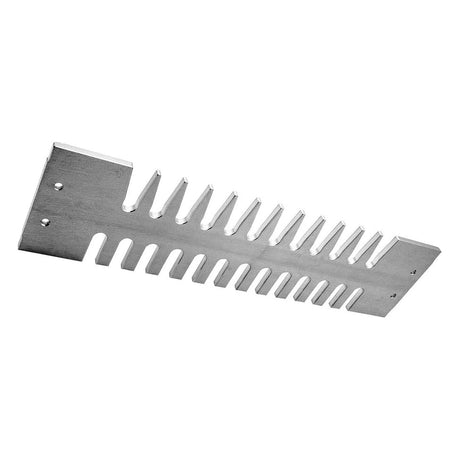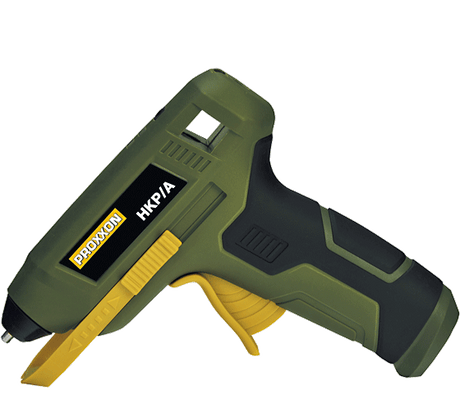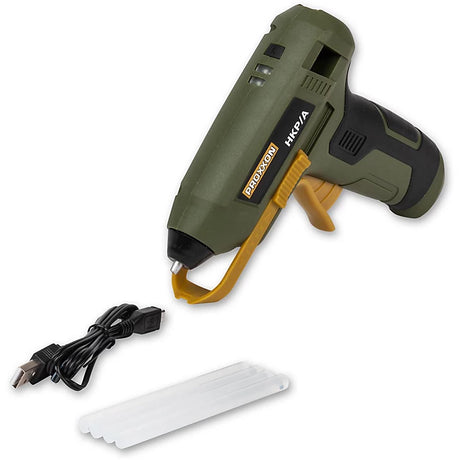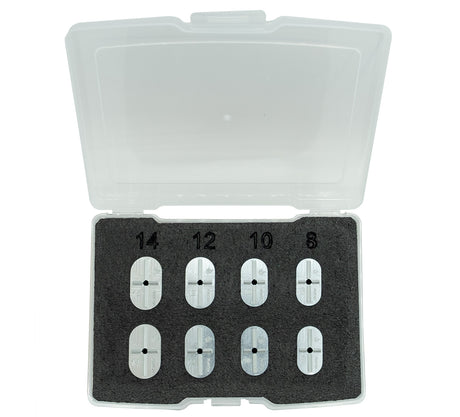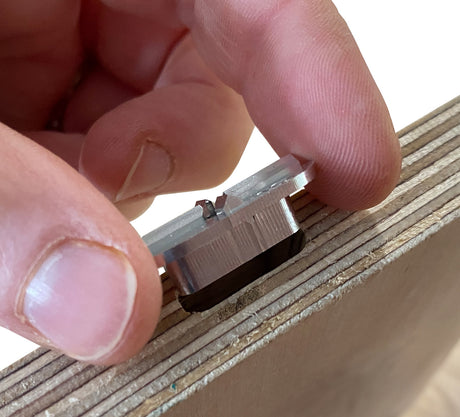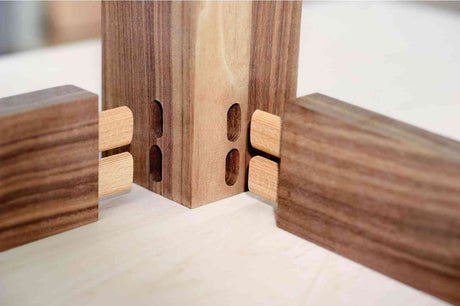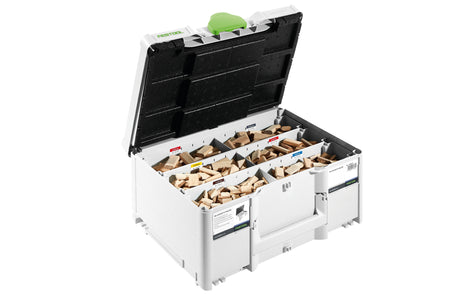Festool
Festool DF 700 DOMINO Joining Machine in Systainer
$2,999.00Unit price /UnavailableIn stockFestool
Festool Beech Tenon 8mm / 10mm Starter Systainer Set for DF 700
$408.50Unit price /UnavailableIn stockPROXXON
PROXXON HKP-A Hot Glue Gun Battery Powered 3.6V
$93.90$98.90Unit price /UnavailableIn stockIncra
Incra CleanSweep Router Table Dust Collection Box Adaptor
$56.50$62.90Unit price /UnavailableIn stockIncra
Incra LS WonderFence Positioner Super System 430mm Capacity
$1,169.00$1,299.00Unit price /UnavailableIn stockFastCap
FastCap 8-Piece Mortise Marker XL Set suits Festool DF 700 Domino XL Joiner
$150.00$175.90Unit price /UnavailableIn stockBora Tool
BORA Tool Pocket Hole Jig Stepped Drill Bit 9.5mm
$40.50$44.90Unit price /UnavailableLow stock (2 units)Festool
Festool Router Cutter 12mm for DF 700 Domino Joiner
$160.50Unit price /UnavailableVery low stock (1 unit)Festool
Festool Hardwood Tenons 14mm x 750mm for DF 700 Pack of 18
$335.00Unit price /UnavailableVery low stock (1 unit)Festool
Festool Beech Tenons 8mm x 36mm for DF 500 Pack of 130
$54.00Unit price /UnavailableVery low stock (1 unit)Festool
Festool Hardwood Tenons 10mm x 50mm for DF 500 Pack of 85
$97.50Unit price /UnavailableIn stockFestool
Festool Beech Tenon 12mm / 14mm Starter Systainer Set for DF 700
$383.50Unit price /UnavailableIn stockTrend
Trend 1/2in Through Dovetail Template for 300mm Dovetail Jig
$242.00$269.00Unit price /UnavailableVery low stock (1 unit)Trend
Trend 1/2in Box Joint Template for 300mm Dovetail Jig
$161.00$179.00Unit price /UnavailableVery low stock (1 unit)
Master the Art of Joinery with Precision Tools
Joinery is at the heart of woodworking, encompassing techniques that allow wood to be joined together to create strong, durable, and aesthetically pleasing structures. Whether you're crafting furniture, cabinets, or intricate wooden designs, mastering joinery is essential for producing high-quality work. From dovetails to mortise and tenon joints, each technique requires precision, skill, and the right tools.
With the right joinery tools, you can ensure that your joints are not only functional but also enhance the overall appearance of your projects. Quality tools such as chisels, saws, and jigs make it easier to achieve perfect fits and seamless connections, which are critical in creating lasting and beautiful woodworking pieces.
Investing time in learning joinery techniques pays off in the quality and craftsmanship of your work. Whether you are a beginner or an experienced woodworker, understanding the fundamentals and advanced methods of joinery will elevate your projects and open up new possibilities in woodworking.
Explore a variety of joinery tools and techniques to enhance your woodworking skills, ensuring your creations stand the test of time both in strength and beauty.
FAQs
What are the most common types of joinery?
The most common types of joinery include dovetail joints, mortise and tenon joints, lap joints, butt joints, and finger joints. Each type has its specific applications depending on the strength and appearance required.
What tools are essential for joinery?
Essential tools for joinery include chisels, saws (such as dovetail and tenon saws), marking gauges, squares, and planes. Having a good set of clamps is also crucial for holding pieces together as glue dries.
How do I choose the right joinery technique for my project?
Choose a joinery technique based on the project's requirements for strength, aesthetics, and ease of assembly. For example, dovetail joints are excellent for drawers, while mortise and tenon joints are ideal for frames and chairs.
Can beginners learn joinery techniques easily?
Yes, beginners can learn joinery with practice and patience. Start with simpler joints like butt joints or lap joints, and gradually progress to more complex techniques like dovetails or mortise and tenon joints.
What wood types are best for joinery?
Hardwoods like oak, maple, and walnut are preferred for joinery due to their strength and durability. However, softwoods like pine can also be used, especially for less load-bearing joints or when practicing techniques.
How important is glue in joinery?
Glue is crucial in joinery as it helps to secure joints and distribute stress evenly across the joint, increasing the overall strength and stability of the construction. Always choose the appropriate glue type for your specific project.
What are dovetail joints, and when should they be used?
Dovetail joints are interlocking joints commonly used in drawer construction due to their strength and resistance to being pulled apart. They are also aesthetically pleasing and showcase skilled craftsmanship.
How can I ensure my joints are accurate?
Accuracy in joinery can be achieved by careful measuring and marking before cutting. Using quality tools, maintaining sharp blades and chisels, and practicing consistently are key to achieving precise joints.
What is a mortise and tenon joint?
A mortise and tenon joint involves inserting a tenon (a protruding piece of wood) into a mortise (a corresponding hole) to join two pieces of wood. This joint is known for its strength and is commonly used in frames and furniture construction.
What is the difference between joinery and carpentry?
Joinery focuses on making wooden components that fit together to form joints, typically in a workshop. Carpentry involves constructing and assembling these components on-site, often dealing with larger-scale construction like framing buildings.


